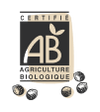Farm Logbook - Always More Harvests
This week, Margot and Olivier harvested the Tabasco pepper to extract its precious seeds. To do this, it is essential to wear long-sleeved clothing as well as gloves, goggles and cartridge masks (yes, you read that right!) because this variety is 9/10 or 10/10 on the Scoville scale! This week, Margot and Olivier harvested the Tabasco pepper to extract its precious seeds. To do this, it is essential to wear long-sleeved clothing as well as gloves, goggles and cartridge masks (yes, you read that right!) because this variety is 9/10 or 10/10 on the Scoville scale! This week, Margot and Olivier harvested the Tabasco pepper to extract its precious seeds. To do this, it is essential to wear long-sleeved clothing as well as gloves, goggles and cartridge masks (yes, you read that right!) because this variety is 9/10 or 10/10 on the Scoville scale! Tabasco Pepper Tabasco Pepper The melon pear was also harvested, the crop was magnificent but melon pear seeds are very rare... Indeed, we planted half a tunnel of melon pear, or 330 plants, and harvested about 100 seeds. We knew: this crop requires a lot of effort for few seeds because of parthenocarpy. Parthenocarpy is a genetic phenomenon (accentuated by high heat) by which some plants produce fruits that have almost no seeds. We observe this on some varieties of tomatoes and on the pepino melon pear. In order to preserve diversity, we want to continue to offer these seeds but are actively looking for ways to improve the yield. The melon pear was also harvested, the crop was magnificent but melon pear seeds are very rare& Indeed, we planted half a tunnel of melon pear, or 330 plants, and harvested about 100 seeds. We knew it: this crop requires a lot of effort for few seeds because of parthenocarpy. Parthenocarpy is a genetic phenomenon (accentuated by high heat) by which certain plants produce fruits that have almost no seeds. This is observed in some varieties of tomatoes and in the pear-melon seed.





